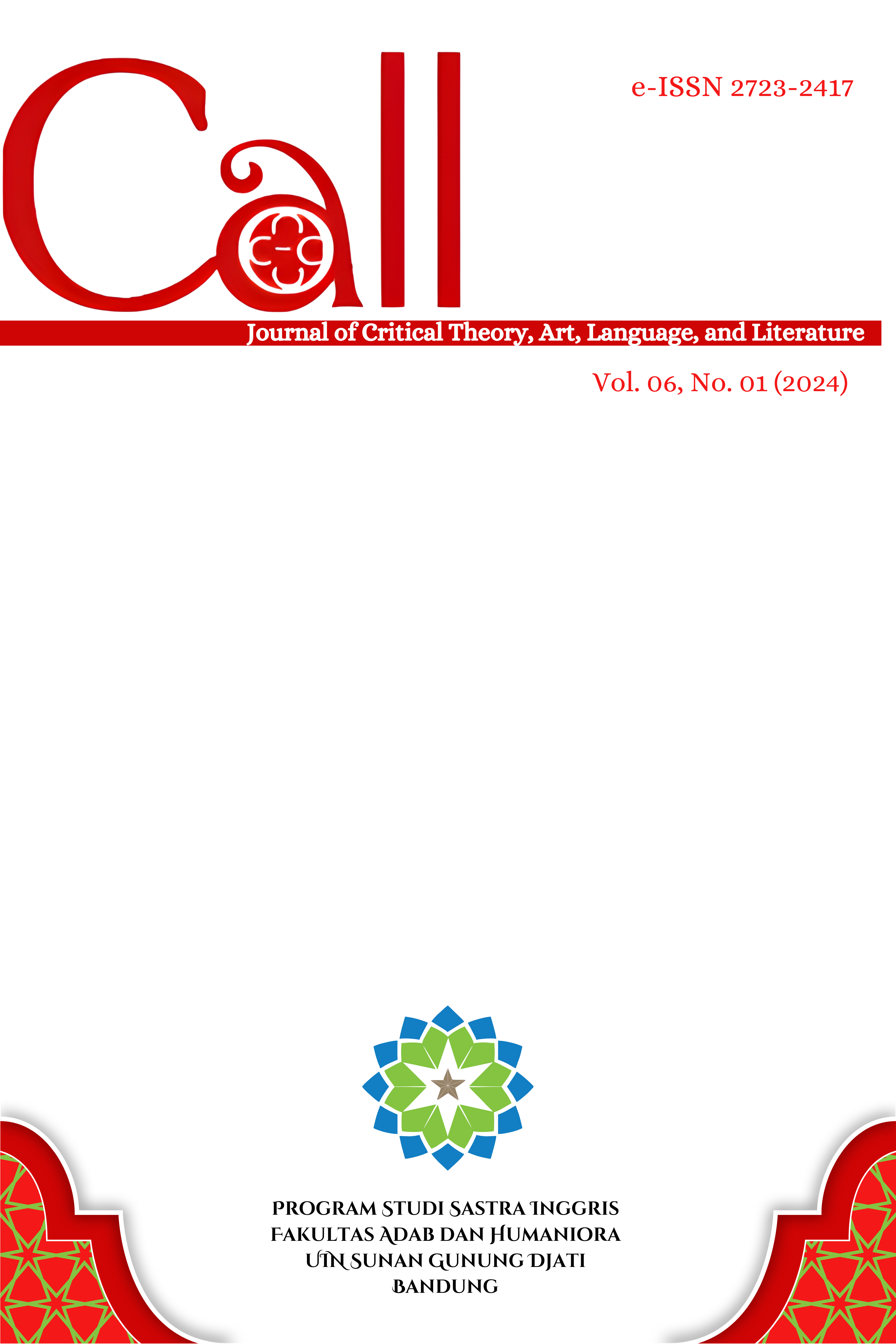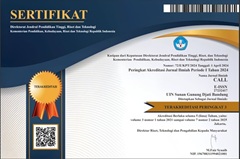MAJOR CONFLICT OF GREAT EXPECTATIONS BY CHARLES DICKENS
DOI:
https://doi.org/10.15575/call.v6i1.31635Abstract
This study examines the primary conflicts within the novel Great Expectations, each paragraph focusing on a distinct conflict present in the narrative. The analysis applies Lewis A. Coser's theory of social conflict (2002), which categorizes conflicts into three types: conflicts concerning social statuses, conflicts of interest, and conflicts of role. The objective of this research is to identify these social conflicts within the novel and explore their impact on readers. The study identifies a total of 13 instances of social conflict: 7 related to conflicts concerning social statuses, 3 involving conflicts of interest, and 3 concerning conflicts of role. Employing a descriptive qualitative method, the research analyzes textual data to uncover these conflicts, which are integral to the story of the main character. The novel adopts a mode that combines personal narrative with written and spoken dialogue. The influence of these social conflicts on readers is significant, as they resonate with real-life situations, helping readers to understand and navigate various types of conflicts encountered in everyday life.
Keyword: literature, conflict, character
References
Agner, F. (2017). Warlike and peaceful societies: the interaction of genes and culture. Cambridge: Opeb Book Publishers.
Ancicih, E.M., Nathanael, J.F., Halevy, N., & Galinsky, A.D. (2015). When the bases of social hierarchy collide: power without status drives interpersonal conflict. Organization Science, 27(1), 1-54.
Beaton, R.D., & Murphy, S.A. (2013). Working with people in crises: research implications. New York: Routledge.
Bengtsson, S., Hansson, P., Håkansson, M., & Östman, L. (2024). Positioning controversy in environmental and sustainability education. Environmental Education Research, 1(1), 1–27.
Elbardan, H., Kholeif, A.O. (2017). An interpretive approach for data collection and analysis. London: Palgrave Macmillan Cham.
Fravel, M.T. (2010). The limits of diversion: rethinking internal and external conflict. Security Studies, 19(2), 307-341.
He, A. W. (2017). Discourse analysis: the handbook of linguistics. 2nd Ed. Wiley Blackwell.
Holder, E. (2024). Personal Constructions of the Mother Role: Perceptions of Mothers in Health Care.
Johnstone, B., & Andrus, J. (2024). Discourse analysis. 4th Ed. New Jersey: John Wiley & Sons.
Keya, A. M. (2018). A systemic functional linguistic differentiation of theme-idea and theme-subject. University of Dar es Salaam Journals, 12(1), 1–15.
Kristina, L., (2007). The impact of objective characteristics on subjective social. Trames Journal. Vol 15 (1), 54-68.
Lee, T. S. (2020). Peace journalism. New York: Routledge
Lowenthal, L. (2017). Literature and mass culture. New York: Routledge.
Menkel-Meadow, C. (2020). Critical moments reconsidered: when we say yes and when we say no. Negotiation Journal, 36(2), 233-241.
Semi M. A. (1988). Literary anatomy. Padang: Sidharma
Setiadi, E., & Kolip, U. (2013). Introduction to political sociology. Jakarta: Kencana.
Stead W. W. (2017). The complex and multifaceted aspects of conflicts of interest. JAMA. 2017;317(17):1765–1767.
Downloads
Published
Issue
Section
Citation Check
License
Authors who publish in CALL agree to the following terms:
- Authors retain copyright and grant the journal right of first publication with the work simultaneously licensed under Attribution-ShareAlike 4.0 International (CC BY-SA 4.0) License that allows others to share the work with an acknowledgment of the work's authorship and initial publication in this journal.
- Authors are able to enter into separate, additional contractual arrangements for the non-exclusive distribution of the journal's published version of the work (e.g., post it to an institutional repository or publish it in a book), with an acknowledgment of its initial publication in this journal.
- Authors are permitted and encouraged to post their work online (e.g., in institutional repositories or on their website) prior to and during the submission process, as it can lead to productive exchanges, as well as earlier and greater citation of published work (See The Effect of Open Access).




